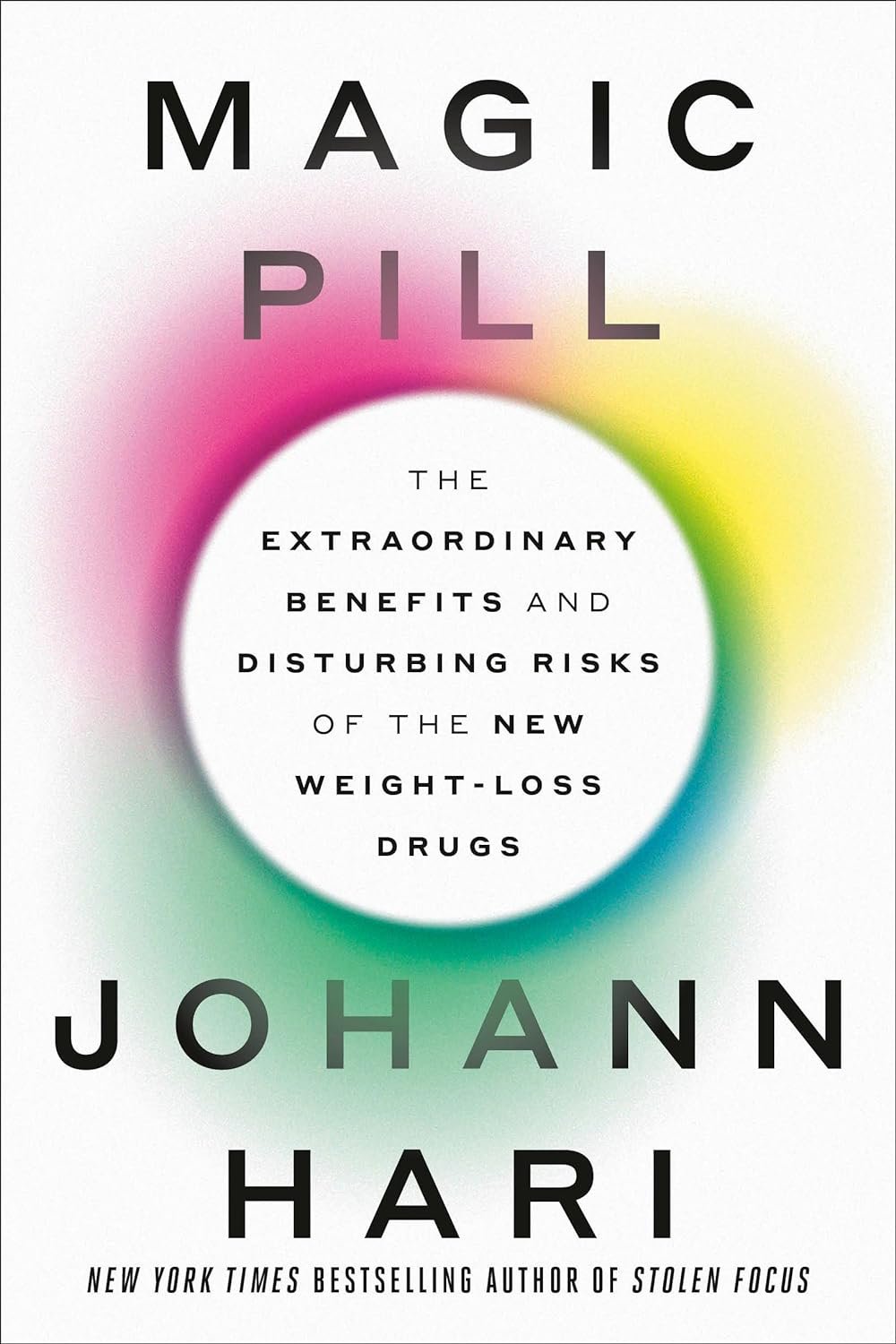Magic Pill: The Extraordinary Benefits and Disturbing Risks of the New Weight-Loss Drugs
Johann Hari
A Controversial Look at Weight-Loss Drugs: A Review of “Magic Pill” by Johann Hari
A Bold Exploration: In “Magic Pill,” journalist Johann Hari tackles the complex and often controversial topic of new weight-loss drugs claiming revolutionary effects. He embarks on a personal journey, experimenting with one such drug while interviewing experts, scientists, and individuals impacted by obesity, aiming to demystify the issue and present a nuanced perspective.
Strengths:
- Investigative Approach: Hari delves deep into the science behind the drugs, exploring how they work and their potential benefits and risks. He also critically examines the societal factors contributing to the rise of obesity, moving beyond individual choices and considering broader systemic issues.
- Compelling Narratives: The book weaves together Hari’s personal experience with obesity and his experimentation with the drug with the stories of others. This combination of perspectives adds a human element and allows readers to empathize with the struggles faced by individuals battling weight issues.
- Challenging Biases: “Magic Pill” challenges traditional narratives around obesity, arguing against the often-inaccurate framing of it solely as a result of personal choices and lack of willpower. The book highlights the influence of social and environmental factors on weight gain and the need for a multi-faceted approach to addressing the issue.
Considerations:
- Controversial Content: The book’s portrayal of the potential benefits of weight-loss drugs can be seen as advocating for a “magic bullet” solution to a complex problem. This might raise concerns about promoting an over-reliance on medication and neglecting broader lifestyle and societal changes.
- Limited Scope: While the book explores various perspectives, some readers might find the inclusion of critical voices regarding the drugs and their potential drawbacks lacking. A more balanced representation of opposing viewpoints could add greater depth to the conversation.
- Emphasis on Personal Story: Hari’s personal narrative, while compelling, can overshadow the wider societal and scientific discussion at times. Readers seeking a more comprehensive and objective analysis of weight-loss drugs and their implications might find the individual perspective dominant.
Overall: “Magic Pill” is a thought-provoking and controversial read that sparks important conversations about weight loss, its causes, and potential solutions. While it might not offer definitive answers, it raises critical questions and challenges readers to consider the complexities surrounding this global health issue beyond simplistic solutions.
Recommendation: Recommended for readers interested in the science and ethics of weight-loss drugs, those seeking a broader perspective on the causes of obesity, and individuals open to considering diverse and sometimes controversial viewpoints on a complex societal issue. Be prepared to critically engage with the book’s claims and opinions and consider exploring additional resources for a more comprehensive understanding of this multifaceted topic.

